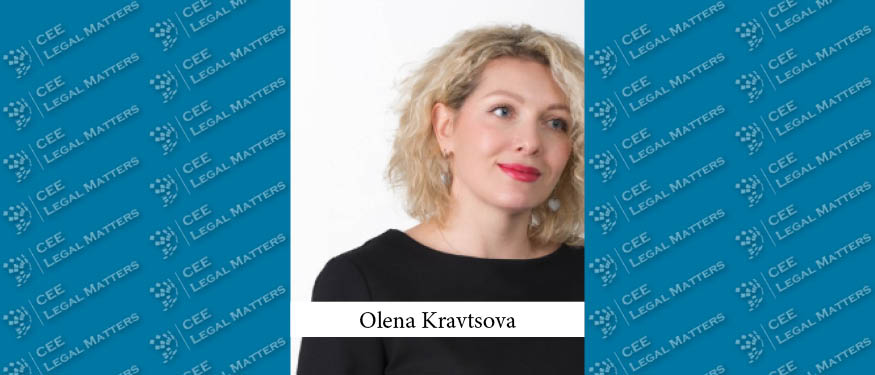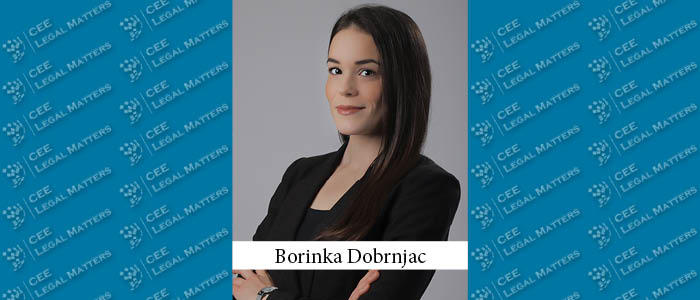On 17 March 2025, a new Regulation of the Moldovan Competition Council (the "MCC") on Economic Concentrations (the "New EC Regulation") entered into force in Moldova (as secondary legislation). It introduces several key changes aimed at enhancing the enforcement of competition legislation and increasing transparency. The New EC Regulation transposes several European Union regulations, including the Commission Implementing Regulation (EU) 2023/914 of 20 April 2023 and the Commission Notice on a simplified treatment for certain concentrations 2023/C 160/01.
Changes Regarding Remote Work for Employees: Business Trips and Distance Education of Children
On 2 May 2025, the Law of Ukraine "On Amendments to the Labour Code of Ukraine Regarding the Improvement of Legal Regulation of Certain Issues of Home-based and Remote Work" (the "Law") entered into force.
Ukraine Intends to Resume Statute of Limitations After 5 Years of Suspension
On 14 May 2025, the Verkhovna Rada of Ukraine adopted Law No. 4434-IX, amending paragraph 19 of the “Final and Transitional Provisions” of the Civil Code of Ukraine regarding the resumption of the statute of limitations.
North Macedonia Adopts New Law to Regulate Seasonal and Occasional Employment
In a progressive move towards formalising seasonal and occasional work, the Assembly of North Macedonia has adopted a groundbreaking law to regulate temporary employment across key sectors. This legislative development aims to streamline the hiring process for temporary workers while ensuring they receive essential social security benefits.
New Legal Amendments Related to Remote and Home-Based Employees
On 2 May 2025, the Law of Ukraine No. 4339-IX “On Amendments to the Labour Code of Ukraine on Improving the Legal Regulation of Certain Issues of Home and Remote Work” (the “Law”) came into force. The Law is aimed at regulating issues related to sending home-based and remote employees on business trips and creating favourable conditions for parents whose children are studying remotely.
Serbia Becomes a Member of the Single Euro Payments Area
On 22 May 2025, the Republic of Serbia was officially included within the geographical scope of the Single Euro Payments Area (“SEPA”) payment schemes, becoming its 41st member.
Hungarian Competition Law and Enforcement Trends: What Can Companies Expect in 2025?
New amendments were implemented to the Hungarian Competition Act in 2024 and early 2025. Merger control proceedings increased by almost a third in 2024 compared to the previous year. The enforcement activity of the Hungarian Competition Authority (HCA) was also noteworthy, with the Hungarian watchdog imposing more fines for competition infringements than in the previous year, especially in cartel cases. In this article we explore recent legislative changes and enforcement trends, while highlighting what companies can expect for the rest of 2025.
Employee’s Right to Access Personal Data After Termination of Employment
The data subject has the right to access the data processed by the controller about them, a right guaranteed by both the EU General Data Protection Regulation (“GDPR”) of April 14, 2016, which came into force on May 25, 2018, and the Law on Personal Data Protection of the Republic of Serbia.
Bank of Albania Tightens Marketing Rules for Banks and Financial Institutions
The Bank of Albania has introduced a new regulatory framework on marketing and advertising by financial institutions, significantly enhancing consumer protection and transparency in the financial sector. The changes, enacted through Decision No. 11, dated 5 February 2025, amend the Regulation “On Transparency for Banking and Financial Products and Services” and enter into force on 1 May 2025.
New Energy Law in North Macedonia – Major Novelties for Development of Energy Capacities
Starting from 29 May 2025 a new Energy Law starts to apply in North Macedonia. This new regulatory framework serves for transposition of the Clean Energy Package into the national legislation and introducing major novelties, such as new development process for energy generation and storage capacities, integration of e-mobility to the electricity grid, additional possibilities for development of natural gas and heating networks, etc.
Slovakia: Has the Transposition of the Equal Pay Transparency Directive Finally Gained Momentum?
According to a preliminary legislative notice issued by the Ministry of Labour, Social Affairs and Family of the Slovak Republic and published on 15 May 2025, the Ministry is preparing a draft law on pay transparency.
Montenegro: PPPs – Legal Framework, Challenges, and Examples
PPPs represent a long-term collaboration between the public and private sectors, enabling more efficient construction, maintenance, and management of infrastructure, with an optimal distribution of risks and financial obligations.
Slovenia: Navigating Ljubljana’s Office Real Estate Landscape
Ljubljana, the capital of Slovenia, is currently witnessing a substantial increase in the development of Class A office spaces. Over the next three years, the city is set to introduce more than 100,000 square meters of new Class A office spaces. These developments are characterized by modern designs and a strong emphasis on sustainability, aiming to achieve energy certifications that are crucial for ESG compliance.
Slovakia: New Construction Legislation (Again), EIA, and Strategic Investments
Permitting of any projects is a long-standing problem in the Slovak Republic. It seemed that this problem would largely be solved by the new construction legislation that was approved in 2022 and was supposed to enter into force fully on April 1, 2024.
Bulgaria: Energy Storage Infrastructure on the Rise in Bulgaria
In recent years, Bulgaria has increasingly prioritized the development of energy storage infrastructure as part of its broader transition to a more sustainable and resilient energy system. With growing renewable energy capacity, particularly from solar and wind sources, the need for efficient storage solutions has become critical to balancing supply and demand.
Greece: Key Differences and Selection Criteria in Concession Agreements vs Public-Private Partnerships
Governments increasingly involve the private sector in infrastructure projects through concession agreements or public-private partnerships (PPPs). While both models attract private investment, they differ significantly in financial structures, risk allocation, and regulatory framework. Choosing the appropriate model depends on project objectives, revenue generation potential, and public sector involvement in funding and oversight.
Ukraine: Public-Private Partnership Legislative Transformation for Post-War Reconstruction in 2025
The year 2025 is poised to mark a significant legislative update in Ukraine’s public-private partnership (PPP) framework, representing a critical strategic approach to the country’s comprehensive post-war reconstruction efforts. The government, Parliament, and key stakeholders are actively preparing for an extensive rebuilding effort focused on infrastructure damaged during military hostilities. This process will rely on support from the European Union, the United States, international financial institutions, and other major donors.
Romania Moves Forward with Offshore Wind: Call for Expressions of Interest To Define Future Concession Zones
A critical preparatory step towards wind farm development in the Black Sea was taken on 16 May 2025, with the Ministry of Energy’s call for Expressions of Interest to prepare a specialized study identifying the Black Sea offshore zones suitable for wind farm development. The study is envisioned under Law 121/2024 on Offshore Wind Energy, a key component of Romania’s National Recovery and Resilience Plan (PNRR).

































